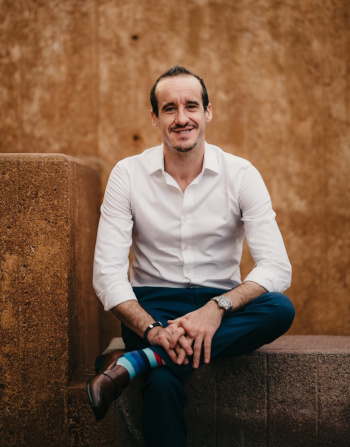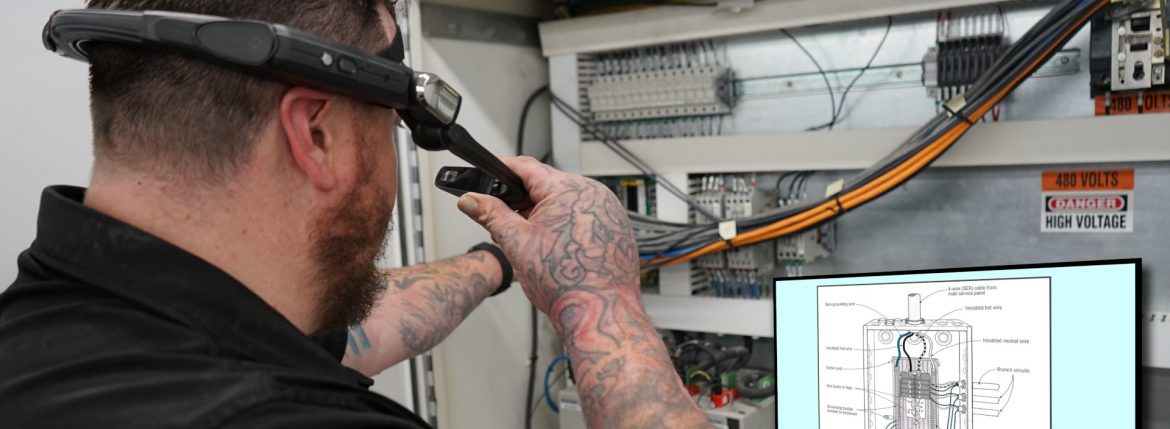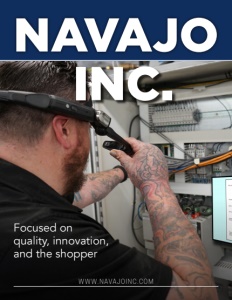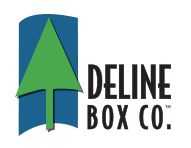Navajo Inc.
Focused on quality, innovation, and the shopper
Business View Magazine interviews representatives of Navajo, Inc., as part of our focus on best practices in the merchandising and retail sector.
Founded in 1978 as a Native Indian jewelry enterprise, the Navajo name in business is synonymous, America-wide, with quality products and programs, competitive prices, and customer satisfaction. With its headquarters in the North Washington neighborhood of Denver, CO, and two additional distribution centers in Portland, OR and Morristown, TN, the company maintains its status as a privately-owned manufacturer whose standards of service, merchandising programs, and sales expertise are unsurpassed in the retail marketplace. The company employs over 400 dedicated people who work as a team, committed to realizing its vision of perfecting the creation, development, and delivery of consumer goods. From health, beauty and wellness, to consumer electronics, and almost everything in between, Navajo presents full-line offerings uniquely customized for each retail strategy, using a broad range of methods (Programs, Plan-o-grams) to ensure top-selling items are well-stocked and replenished as necessary.

Mark Deuschle, President
The marketing power of the product catalog is as important to Navajo today as it has ever been. “Our founder, Gordon Levy, was really one of the first to work with the Native groups, to have them design hand-made jewelry against a specific style so that he could catalog it; effectively, sell it out of a catalog,” says Mark Deuschle, President of Navajo Inc. “That concept evolved into offerings inside the convenience channel with lighters and lighter covers, and that grew into a relationship with 7-Eleven, McLane Co., and some of the other convenience players. We quickly became a source for all the general merchandise products – everything from office supplies to padlocks. We were known for that, and nimble. Gordon began traveling into China way early in the process in the ‘70s. He became proficient at sourcing, and that obviously provided more access to items. We became a broad base of business. I say we were a mile-wide and an inch-deep; a lot of items, not all with the same velocity.”
Along the way, Navajo Inc. became a sun- and reading-glass manufacturer; today, they’re one of Wal-Mart’s largest suppliers of quality eyewear in trend-forward styles, in the under-30$ category. The essential consumer packaged goods company also assumed a power-position relative to health and beauty when it began working with retailers to manage the life cycles of their products in the trial and travel category. “About six years ago, I had the good fortune of joining the company, and at that point made some decisions about narrowing our focus and getting deeper,” Deuschle recalls. “We focused our energy on three core areas: trial and travel, under the Handy Solutions and Good To-Go brands; sunglasses and readers, under the Piranha Eyewear brand; and our cell phone and mobile accessory line, under the Hottips brand.”
The demand for travel and trial-size personal care, household, and over-the-counter products has reached an all-time high. From the rise in requests for sampling sections at retail stores to stricter airplane regulations, consumers are begging for more totable products that they can bring with them on-the-go. “Good To-Go encompasses all of those plastic bottles that you associate with that department: more miniature sizes, decanted from larger containers,” Deuschle explains. “That’s a significant part of our business, about 40 percent of our volume. We repack, for the most part, national brands—Unilever, Procter & Gamble, Johnson & Johnson. We buy their product in bulk and we do something to it in order to make the entire program more efficient for the retailer. We’ll blister card it, or we’ll make travel kits.”
In order to build to this scale of business, Navajo Inc. has relied on its multipurpose facilities to supply a large portfolio of fast-moving consumer products to a wide array of retailers across the U.S. “We’re almost the exclusive supplier of health and beauty/trial and travel to the food channel. We have everyone—Kroger, Safeway, Wegmans. Eyewear often penetrates the food channel as well, so we’ve got Southeastern Grocers, Winn-Dixie, Wal-Mart, Bashas’. In the cell phone accessory, it just follows where our customers currently are. One of the things we’ve been doing effectively in the last couple of years has been selling our complete portfolio to the retailers we already do business with. It’s a huge customer base, including convenience and the hospitality channel—cruise ships, airports, resorts. We’re in those locations as well.”
One of the great leadership moments in business is making the unpopular decision that’s right for the company. As far as Deuschle and Navajo Inc. are concerned, this has meant cultivating an environment of innovation where the flow of people, ideas, applications, saleability, and reinvestment aligns into a sustainable, profitable cycle, irrespective of the pushback. “That speaks to part of what makes our company attractive as an employer,” says Deuschle. “Being privately-held and privately-financed, we have the freedom to invest a little bit differently than if we were private-equity backed or public. We’ve been able to make our own way. When someone tells us ‘no,’ we listen—I think we’re great listeners—but we’re also confident about what we think is going to work. It hasn’t all been successes, but we’re very agile. We’re able to move quickly; make a new decision and admit we made a mistake. Fail fast, and then execute against that. That’s what makes an environment that attracts and retains good talent.”
“As part of our mission to simplify everything that we can, we knew we needed to rethink our flow racking system,” offers Antonio Soto, Vice President of Operations. “But when we talked to the engineers and vendors, they insisted our concept wouldn’t work. ‘No one does this,’ they said. Well, we knew that that wouldn’t work for us, so we still went through with it. We invested the money, and it ended up working perfectly.”

Antonio Soto, Vice President of Operations
Technology has been a big driver of the changes that have propelled Navajo forward. “We like to apply as much technology as we can,” Soto admits. “For example, we have learning pods in front of every machine. That comes from learning how our workers behave. We develop our own how-to videos on how to run and troubleshoot the equipment. Anyone can watch the video and, in under two minutes, become an expert on how to run the machine. Our old system had a learning curve of two days. With the new system we’ve just implemented, we’ve shrunk that down to 10 minutes. That gives us a very competitive advantage.”
Many of Navajo’s warehouse workers are outfitted with Google Glass, an optical head-mounted display shaped like a pair of eyeglasses. “Smart glasses are incredibly useful when you have so much machinery,” insists Soto. “Instead of having to bring engineers in, we can have them record step-by-step how to do the maintenance. We can even send mechanics a link to watch us, what we’re doing, and they can guide us from where they are. We also use the glasses to pick orders. Instead of having an order puller going and using an old-type scanner, picking a ticket, scanning from screen to screen and then reading it back, the smart glasses communicate by voice to them, telling the worker what item to pick, how many to pick, and so on. We’ve gone from picking 34 cases per hour to 260, per picker.”
“We also play around with drones,” Soto continues. “We can now do cycle counts through the warehouse with the drone reading the tags. That’s proprietary for us. We designed it. We fly the drone down the aisle, up and down. In 25 minutes, we can scan half the warehouse, which has 15 aisles. It used to take us one day to do two aisles with one person doing the tagging.”
With flexibility being the key to a business’ survival in the 21st century, it has served Navajo well to shun the traditional pyramid management structure and transfer a substantial part of its organizational control to the frontline. “That’s how we do business—we really do live off that concept of the inverted pyramid,” Deuschle says. “The shopper matters the most. What do they want and need? We must pay attention to that person first. And then who backs the shopper? It’s always the retailer. So, we’ve got to make sure that we’re satisfying the retailer’s requirements. We can win the minds and hearts of the shopper, but if we don’t get on the shelf, we don’t make a profit. Our customers, our service staff, all the individuals supporting that route, all the people that pick our orders and get them out the door, our suppliers, our purchasing team; they’re our most valuable resources. The executive management—Antonio, myself and Gordon—we’re the very inverted part of that pyramid. We work in support of that whole ecosystem.”
“Ultimately, we’re passionate about making sure we’re developing products that delight and surprise our customers,” Deuschle concludes. “We don’t care where they shop. If they shop brick and mortar, and that’s our retailer, we can support them. If they shop online, we can support that, too. When we stay focused on the shopper and what they want, that gives us the best chance to survive and thrive as the world changes. If that means we do piece-picking when we used to only do case-picking, or support a third-party seller, or support Wal-Mart and Target online, we’ve got to be ready to do that. Operations feeds the shopper, not the other way around.”
AT A GLANCE
WHO: Navajo Inc.
WHAT: A merchandising company
WHERE: Denver, Colorado
WEBSITE: www.navajoinc.com




